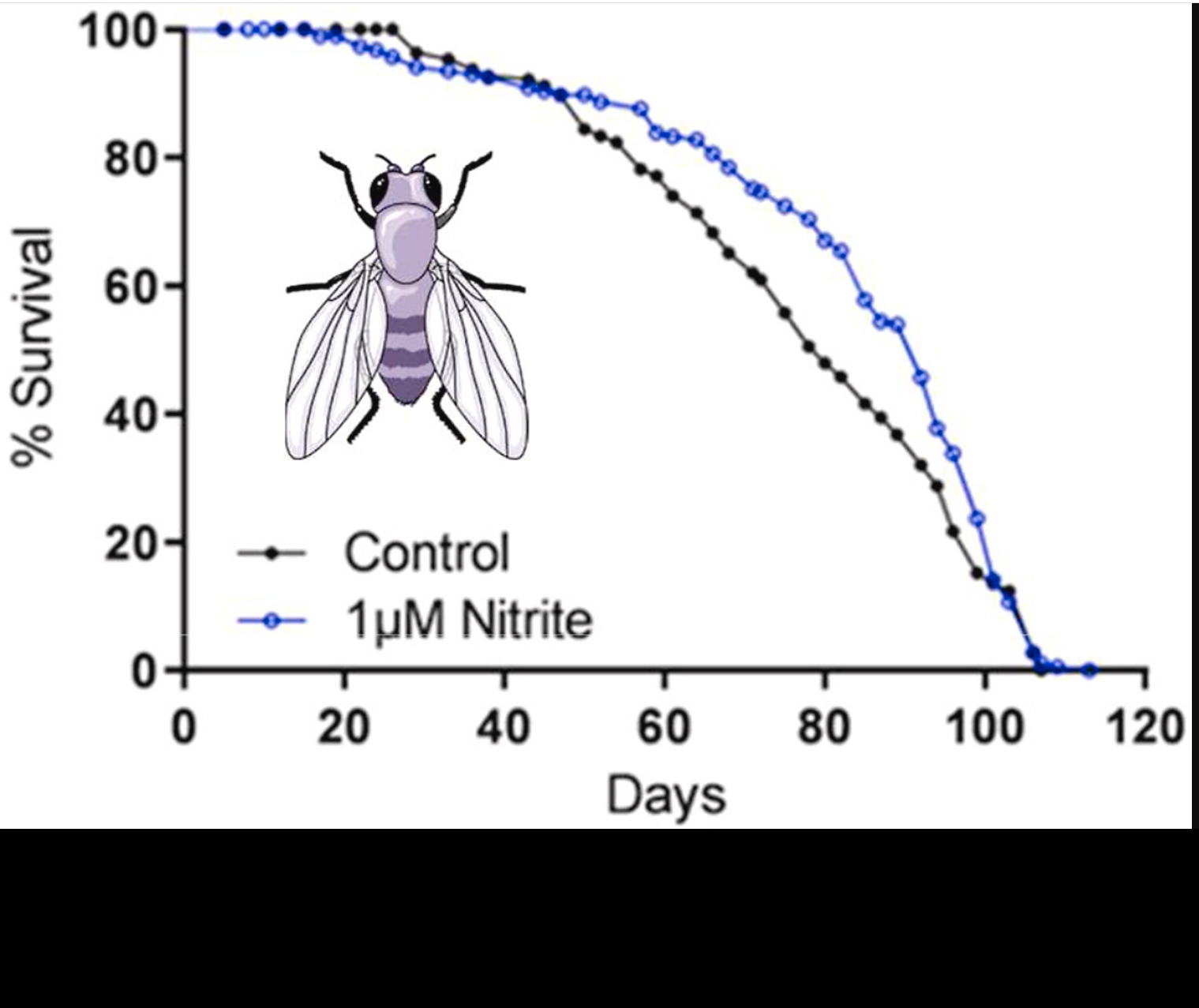Dietary nitrite extends lifespan and prevents age-related locomotor decline in the fruit fly
Chiara H.Moretti Free Radical Biology and Medicine Volume 160, 20 November 2020, Pages 860-870
Highlights
• Dietary nitrite extends lifespan in female Drosophila melanogaster.
• Dietary nitrite improves age-dependent locomotor decline in female flies.
• Modulation of dTOR and dSir2 nutrient sensing pathways may contribute to the anti-aging effects of dietary nitrite.
Aging is associated with decreased nitric oxide (NO) bioavailability and signalling. Boosting of a dietary nitrate-nitrite-NO pathway e.g. by ingestion of leafy green vegetables, improves cardiometabolic function, mitochondrial efficiency and reduces oxidative stress in humans and rodents, making dietary nitrate and nitrite an appealing intervention to address age-related disorders. On the other hand, these anions have long been implicated in detrimental health effects of our diet, particularly in formation of carcinogenic nitrosamines.
The aim of this study was to assess whether inorganic nitrite affects lifespan in Drosophila melanogaster and investigate possible mechanisms underlying any such effect.
In a survival assay, female flies fed a nitrite supplemented diet showed lifespan extension by 9 and 15% with 0.1 and 1 μM nitrite respectively, with no impact of nitrite on reproductive output. Interestingly, nitrite could also protect female flies from age-dependent locomotor decline, indicating a protective effect on healthspan. NO generation from nitrite involved Drosophila commensal bacteria and was indicated by a fluorescent probe as well as direct measurements of NO gas formation with chemiluminescence.
Nutrient sensing pathways such as TOR and sirtuins, have been strongly implicated in lifespan extension. In aged flies, nitrite supplementation significantly downregulated dTOR and upregulated dSir2 gene expression. Total triglycerides and glucose were decreased, a described downstream effect of both TOR and sirtuin pathways.
In conclusion, we demonstrate that very low doses of dietary nitrite extend lifespan and favour healthspan in female flies. We propose modulation of nutrient sensing pathways as driving mechanisms for such effects.














